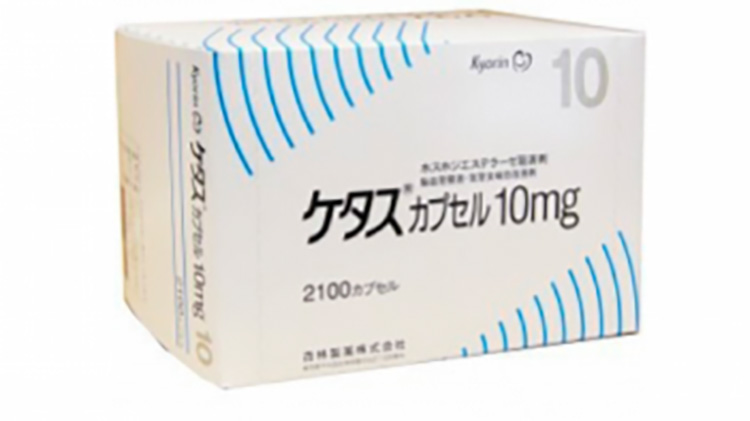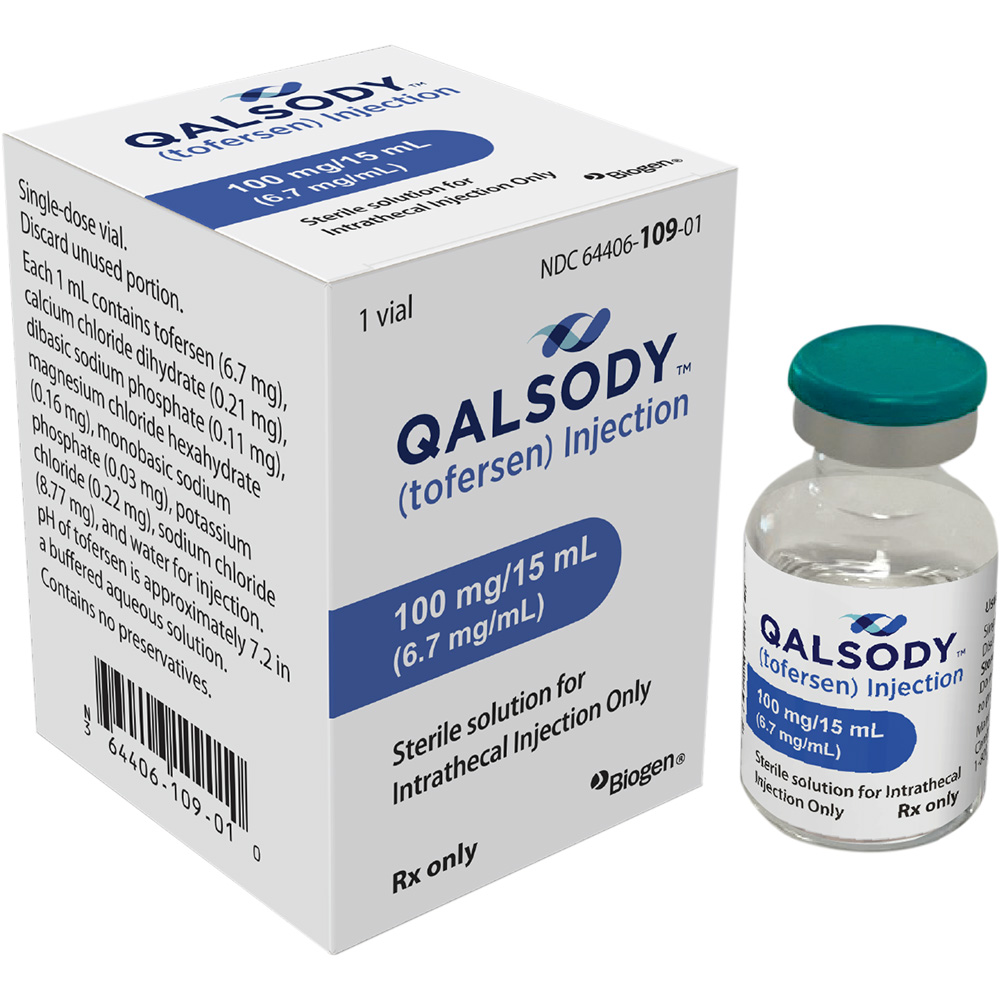Ketas (ibudilast) vs Qalsody (tofersen)
Ketas (ibudilast) vs Qalsody (tofersen)
Ketas (ibudilast) is a phosphodiesterase inhibitor that has been used primarily in Asia for the treatment of asthma and post-stroke complications, and it is being investigated for its potential off-label use in neurodegenerative disorders, including multiple sclerosis and amyotrophic lateral sclerosis (ALS), due to its anti-inflammatory and neuroprotective properties. Qalsody (tofersen) is an antisense oligonucleotide specifically designed to target and reduce the production of a protein called superoxide dismutase 1 (SOD1), which is associated with a genetic form of ALS, and is intended for use in patients with confirmed SOD1 mutations. When deciding between the two, a patient should consider the specific type of their condition, as Qalsody is tailored for SOD1-ALS, while Ketas is being researched for broader neuroprotective applications and is not yet approved for ALS in the United States.
Difference between Ketas and Qalsody
| Metric | Ketas (ibudilast) | Qalsody (tofersen) |
|---|---|---|
| Generic name | Ibudilast | Tofersen |
| Indications | Asthma, Stroke, and Multiple Sclerosis (off-label) | Treatment of amyotrophic lateral sclerosis (ALS) with a confirmed SOD1 mutation |
| Mechanism of action | Phosphodiesterase inhibitor, suppresses pro-inflammatory cytokines and promotes neurotrophic factors | Antisense oligonucleotide that reduces the amount of SOD1 protein by binding to SOD1 mRNA |
| Brand names | Ketas | Qalsody |
| Administrative route | Oral | Intrathecal injection |
| Side effects | Nausea, Dizziness, Rash | Headache, Back pain, Fall |
| Contraindications | Hypersensitivity to ibudilast or any component of the formulation | Hypersensitivity to tofersen or any component of the formulation |
| Drug class | Phosphodiesterase inhibitor | Antisense oligonucleotide |
| Manufacturer | Kyorin Pharmaceutical Co., Ltd. | Biogen |
Efficacy
Efficacy of Ketas (Ibudilast) in ALS
Ketas, known generically as ibudilast, is a phosphodiesterase inhibitor that has been primarily used in the treatment of asthma and post-stroke complications, as well as in certain cases of multiple sclerosis in Japan. Its efficacy in Amyotrophic Lateral Sclerosis (ALS) has been a subject of interest due to its neuroprotective and anti-inflammatory properties. While ibudilast has not been approved specifically for the treatment of ALS, some clinical trials have suggested that it may slow the progression of the disease. However, the data on its efficacy is still limited, and more extensive clinical trials are needed to fully understand its potential benefits for ALS patients.
In a phase 2 trial (the SPRINT-ALS study), ibudilast was evaluated for its safety and tolerability in patients with ALS. While the primary focus was on safety, some efficacy signals were noted. Patients treated with ibudilast showed a slower rate of progression on the ALS Functional Rating Scale-Revised (ALSFRS-R), a measure of functional decline in ALS. Despite these promising results, the trial was not designed to conclusively determine efficacy, and further research is necessary to confirm these findings.
Efficacy of Qalsody (Tofersen) in ALS
Qalsody, also known as tofersen, is an investigational antisense oligonucleotide designed to reduce the production of superoxide dismutase 1 (SOD1), a protein with mutations known to cause a familial form of ALS. Tofersen aims to slow the progression of ALS by targeting the underlying genetic cause in SOD1-ALS patients. In clinical trials, tofersen has shown promise in reducing SOD1 protein levels, which is hypothesized to potentially slow the disease's progression.
The most significant data on tofersen's efficacy comes from a phase 1/2 and phase 3 clinical trials. In these studies, patients with SOD1-ALS who received tofersen experienced a slower decline in the ALSFRS-R score compared to those who received a placebo. Additionally, secondary outcomes suggested improvements in muscle strength and respiratory function. However, the results also indicated that the treatment might be more effective if started earlier in the disease course. While these findings are encouraging, tofersen is still under investigation, and further studies are required to confirm its long-term efficacy and safety in a broader ALS population.
Regulatory Agency Approvals
Ketas
-
Pharmaceuticals and Medical Devices Agency (PMDA), Japan

Qalsody
-
European Medical Agency (EMA), European Union

-
Food and Drug Administration (FDA), USA

Access Ketas or Qalsody today
If Ketas or Qalsody are not approved or available in your country (e.g. due to supply issues), you can access them via Everyone.org.
How it works

Make an enquiry
Choose the medicine you want to buy, answer a couple of questions, and upload your prescription to speed things up. We’ll get back to you within 24 hours.


Make an enquiry
Choose the medicine you want to buy, answer a couple of questions, and upload your prescription to speed things up. We’ll get back to you within 24 hours.


Breeze through the paperwork
We'll guide you through the required documents for importing unapproved medicine, ensuring you have all the necessary information.


Get a personalized quote
We’ll prepare a quote for you, including medicine costs and any shipping, administrative, or import fees that may apply.


Receive your medicine
Accept the quote and we’ll handle the rest - sourcing and safely delivering your medicine.

Some text on this page has been automatically generated. Speak to your physician before you start a new treatment or medication.
Let's talk
If you have any questions, call us or send us a message through WhatsApp or email:
Contact us




